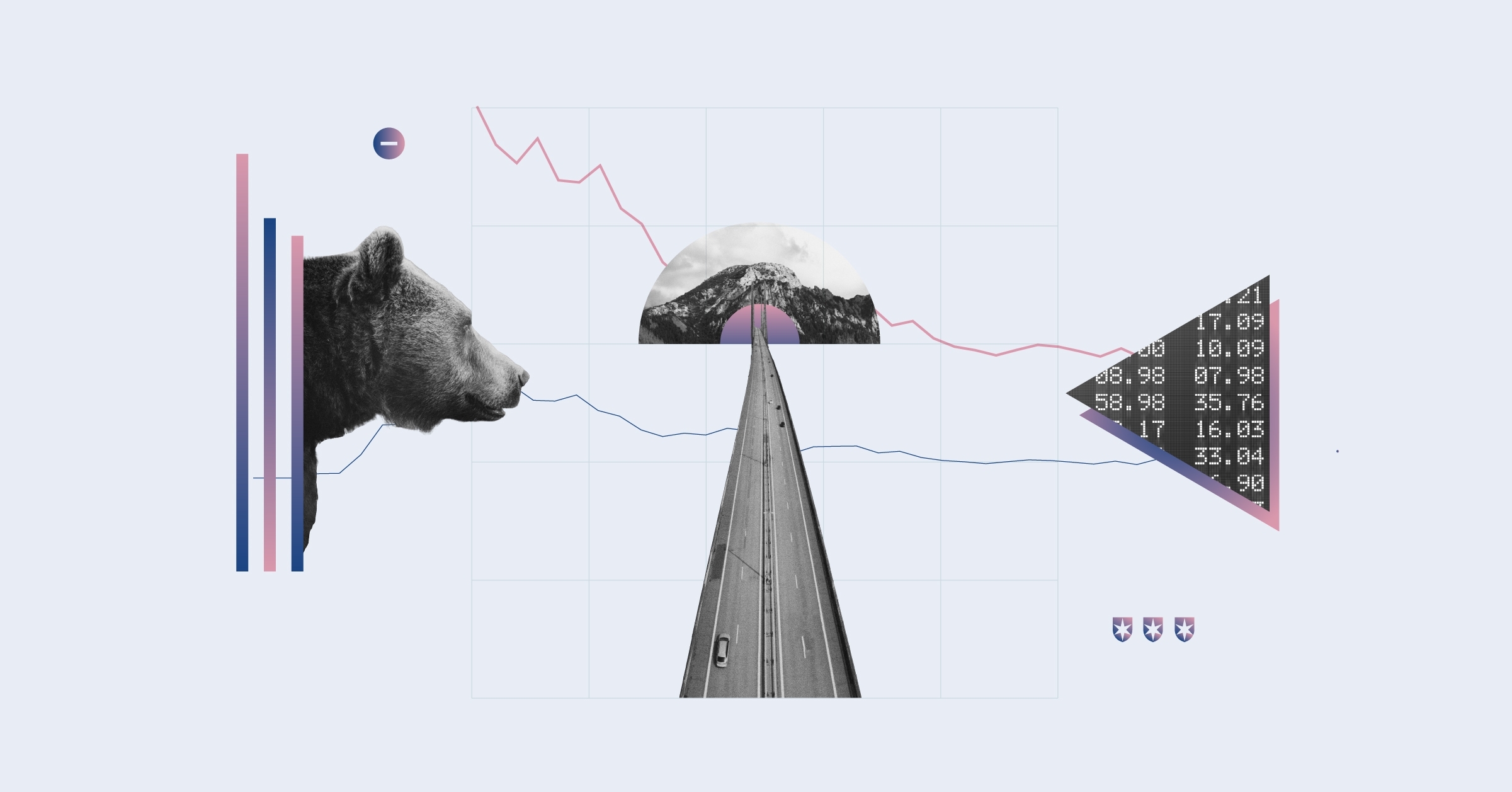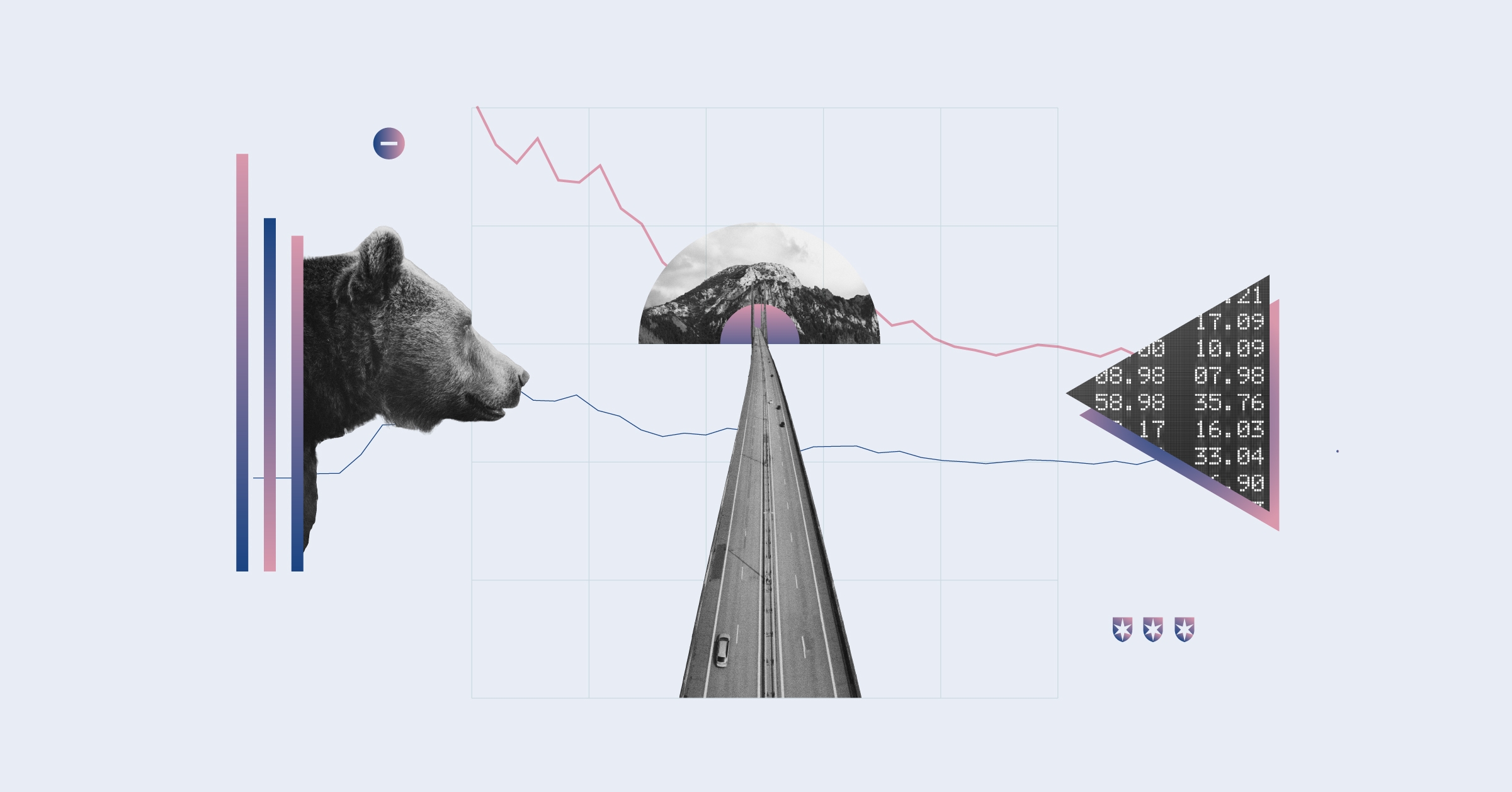Christine Benz: Hi, I'm Christine Benz, director of personal finance for Morningstar. As assets flow into passively managed products, concerns have cropped up about some unintended consequences. Joining me to discuss the legitimacy of these concerns is Alex Bryan. He's Morningstar's director of passive strategies research for North America.
Alex, thank you so much for being here.
Alex Bryan: Happy to be here.
Benz: It's good to have you in person, too, for a change. Let's talk about some of the things that we've seen swirling around ETFs and index funds. As they've grown, some market watchers have voiced concerns that there could be these unintended consequences. So, a biggie that we often hear is that somehow the flow of assets into indexes will cause the markets to be less efficient. It'll cause these, sort of like, market dislocations. Let's talk about just the thesis of why things might work that way.
Bryan: Sure. So, one of the concerns is that as more and more people invest in index funds, and more and more active managers kind of drop out of the market, there's fewer people that are dedicated to doing fundamental analysis on individual securities, and more and more people kind of buying and selling the entire market. In that case, if everybody pulls money out of the market, they may throw out the good stocks, the bad, and that could potentially cause more mispricing in the market than if you have more fundamental stock-pickers doing research and figuring out what each of these stocks are worth. So, that's the concern.
Benz: And the mispricing would be a problem if I'm an index fund investor, because I could end up in some massively overvalued stocks, or ...?
Bryan: That's a concern. Yeah. So, if the market is not efficiently priced, then you could end up owning big stakes and stocks that are overvalued. This was a concern back in the late 1990s when tech stocks were close to 40% of the S&P 500 and those stocks were pretty overvalued. And so, there's that risk that if the markets aren't efficiently priced, you could end up owning a lot of things that are quite a bit expensive.
Benz: So, is this something I should be worried about? And let's start with the perspective of if I'm a passive fund investor, but also, how about for active fund investors?
Bryan: So, I think it's a concern that I think gets overblown. It's kind of this theoretical discussion that comes up in academic circles. What if everybody were to index? What happens then? I think it really depends on who's dropping out of the market. That's number one. So, if the people who are dropping out of the active market are managers who are less skilled, and I think that's more likely the case ...
Benz: Probably something we're seeing right now, right?
Bryan: Exactly. If investors are kind of fed up with years and years of underperformance, and those poor managers drop out, the market could arguably become more efficient, because the managers who are left who are doing the research are arguably more skilled. So, that's one thing I would mention.
Bryan: The second thing is, although index funds have a pretty large share of total assets that are invested in managed funds, about 40% in the U.S., their share of trade volume is much lower. And that's because turnover in index funds tends to be a lot lower than the turnover ...
Benz: They're not trading.
Bryan: Exactly, they're not trading quite as much. Price discovery happens on the margin when shares trade hands. So, if index funds are accounting for a much smaller share of the overall trade volume than they are of total asset ownership, then actually active managers are still driving most of the price discovery that's happening. So, I think we're a long way from this being a problem. It's not to say that it couldn't be a problem at some point, but we're not there yet. And if we ever were to get to that point where there did, you know, become more mispricings, well, then active managers should start doing better and I think there will be this equilibrium that the market finds where people might shift back to active and back and forth until we find that equilibrium.
Benz: That's what active managers are definitely helping, I know. Let's talk about another concern. You think this one is a little more legitimate. And this is in the case of indexes where maybe those securities are a little less heavily trafficked, where there is a reconstitution of an index fund that's tracking that space, that there can be higher transaction costs. Let's walk people through how this works, when index fund makes changes how that causes funds to have to play catchup.
Bryan: So, whenever an index fund reconstitutes, so when there's a – let's say, stocks that are removed from an index, well, everybody who tracks that index, like the S&P 500, has to sell those securities at about the same time regardless of the price that they get. Now, what that tends to cause is, it causes the prices of those stocks to drop when they're removed. Similarly, stocks that are added to the index see a price pop when they're added, but oftentimes, the index investors are getting the less favorable prices because they're not able to buy those newly added securities until after the price goes up or sell until after the prices have gone down. So, this can cause the performance of the index to be a bit less attractive than it otherwise would be if it weren't forced to buy and sell on these predefined dates. And that's one of the reasons why a firm like Dimensional Fund Advisors doesn't like to track an index. It follows a broad market ...
Benz: To take advantage of these sorts of issues.
Bryan: Exactly, exactly. So, that's the concern. And it's, as you mentioned, more acute problem with less-liquid assets, like small-cap stocks, like high-yield bonds, that's where these costs tend to be more pronounced.
Benz: So, what's the solution? Assume I want to track, say, a small-cap stock index, or I want that type of exposure in my portfolio, how should I address it to not be disproportionately burned by this problem?
Bryan: So, I think there's one or two solutions. Number one, you could just own a total market index, where you're kind of on both sides of these trades, and it's a wash. So, if I own something like the Vanguard Total Stock Market Index, yes, there might be some stocks that go into and out of the S&P 500 that are negatively impacted by that, but I already own them if I own the Total Market Index. So, I think that's one solution.
Now, if you want specific exposure to an area like small-cap stocks or high-yield bonds, I think it's a good idea to look for funds that are a bit less popular that have fewer assets tied to them, because that means that when there's changes to those indexes, there's less market pressure on the prices of those stocks, because there's less dollars going into or out of them. So, I think that's one thing to look for.
The second thing you want to look for is indexes that are taking steps to mitigate unnecessary turnover, because a lot of times, well, turnover is costly and a lot of times it doesn't add a lot of value. So, if you, let's say, you're a small-cap stock, and you migrate slightly into mid-cap space, well, that stock is probably going to have very similar performance to other small-cap stocks. So, it may not be worthwhile selling that. It may be OK to hold on to that. So, I think a fund like, let's say, Schwab U.S. Small Cap ETF. That's a less popular fund, and it's one that tracks an index that applies wide buffer zones to try to mitigate these types of unnecessary turnover trades.
Benz: So, the buffer zone is there to keep things from slipping back and forth out of the small-cap space?
Bryan: That's right.
Benz: Let's talk about the last potential concern related to the growth of indexing. And that is that it could cause businesses to be less competitive, or it could cause the complexion of industry to be less competitive. Let's talk about how that would happen, why that would happen as a result of the growth of indexing.
Bryan: So, the concern is that index investors, asset managers who manage these, they own all the companies in the market. So, they don't necessarily have the same incentive to pressure managers to maximize the value of any single company. They may not be as concerned about one firm winning at the expense of another because they want to see all the firms in industry win. So, that's the concern is that this could potentially harm consumers, because it might create some anti-competitive behavior in the same way that if you see consolidation in a given industry, there might be less competition. The concern is that that same effect would happen if you have a couple of big institutional investors like BlackRock and Vanguard own all the airlines, for example.
Benz: Right. Right. So, there's been some academic work on this topic, looking at a couple of different industries. You have written about this topic before as have some of our other colleagues. Do you think this holds water? Should people be concerned about this?
Bryan: I think it's a weak argument for a number of reasons. Number one, I think managers of most companies are heavily incentivized to maximize their own shareholder--the value of their own company.
Benz: So regardless of external pressures?
Bryan: Regardless of external pressures, regardless of who owns the firm. I think managers in most companies, because they're paid very heavily in stock of their own companies and their bonuses are tied to their earnings and to their revenue, they're not really concerned about maximizing the industry's profitability, they're concerned about maximizing the results for their own firm. So, I think that's the first thing.
The second thing is that this argument makes this assumption that it's always in the firm's best interest or almost always in the firm's best interest to compete more aggressively. And I think oftentimes, it's just not the case. If GM, for example, were to cut prices on its automobiles, it knows that Ford is likely going to react and both companies will be worse off. So, I think the ownership of a company doesn't affect the optimal competitive strategy.
The other thing to note is that most index managers aren't really talking competitive strategy or pricing when they do engagements with their portfolio companies. They're more concerned about corporate governance, things like making sure that the board has proper experience, that the company is taking adequate steps to manage risk. They're not really talking about what business strategy the firm should pursue.
The other point I would note is that even if asset managers did want to influence corporate strategy, it's not obvious that they would want to maximize profits at the industry level, because they own all companies across all industries. So, higher ticket prices in the airline industry could actually hurt their holdings in the hotel industry. So, they may not necessarily want that. So, it's not obvious that index ownership is going to lead to less competitive behavior. I think at this stage, the argument is interesting, but I think it's a more academic argument and the empirical evidence really isn't persuasive as of yet. So, I think there's more work to be done in this area.
Benz: Put that one on the backburner for now. Alex, it's always great to get your insights. Thank you so much for being here.
Bryan: Thank you for having me.
Benz: Thanks for watching. I'm Christine Benz for Morningstar.com.






:quality(80)/cloudfront-us-east-1.images.arcpublishing.com/morningstar/A6OOX7PBSVEJ5BXDFSPKGLO72M.png)


:quality(80)/cloudfront-us-east-1.images.arcpublishing.com/morningstar/NYUEHSFI4BDCJPQZJ76HH4PKSM.jpg)












